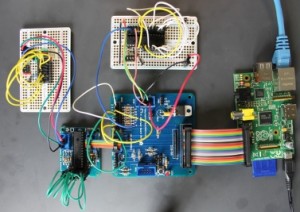Choosing a Python library
You’re working on a Python project, and you realise the next thing to do is a bit tricky. You don’t want to reinvent the wheel if you don’t have to. You wonder: has someone solved this problem before?
The first place to look is the Python Standard Library. One of Python’s great strengths is that it comes with batteries included; there are well-documented, tried and tested libraries to do all sorts of useful things.
No luck? Turn to GitHub for help - it usually can! Most of the libraries I use are hosted on GitHub.
Sometimes you’ll just find one candidate library; sometimes there will be more than one. You’ll need to decide if any fit the bill, and which looks best.
As we’ll see, GitHub can tell you a lot about the quality of the project.
Here are the things I like to ask about a library I’m considering. I’ve illustrated the checklist using the guizero project as an example, since I use it a lot and it ticks all the boxes.
Does it have good documentation?
Is the intended use clear, and does it match your requirements?
I’ve sometimes been caught by a library that looks as if it does the job but actually does something different.
And if it says it’s doing what you want, do the docs show you how to install and use the library?
Is the project active and well supported?
GitHub is your friend here. It’s easy to check how “alive” the project is, right from the project’s home page. You can use it to find out
- When was the last update?
- How many issues are there?
- How many unresolved issues are there?
- How long have they been around?
- Are pull requests dealt with quickly?
- How popular is the project?
- How many people are watching it?
- Is it often starred?
- Has it often been forked?
- Forking is a process for creating a personal copy which you can use for modification, or to suggest fixes or improvements via pull requests.
What is the quality of the code?
Does it support Python 3? Most libraries do these days, but if it doesn’t that is a show stopper.
Is the code readable? I look for good naming of functions, classes, methods, and variables, and I like the use of type hints where these help.
Is the code sufficiently commented?
Is it well structured: simple and short?
Is it sufficiently performant? This may not matter, but if it does, it might matter a lot.
Does it have appropriate licensing?
In my case I look for a licence that's compatible with the MIT licence but your choice will depend on your intended use and your context. If you’re a solo developer you will be able to decide for yourself but in some situations you may need to check Corporate Policy, and may even need to talk to your employer’s legal department.
Does it have a large, supportive community?
If the library has a Slack or Discord channel you may be able to dip in and quickly get the feel of the community. Is it friendly, respectful and helpful?
Is the library easy to learn?
Are there links to Tutorials, Books or Courses? Ideally you should be able to see how to get going straight from the README. (There is a README, isn’t there?)
Is it written by authors I know and trust?
That’s not essential, but it’s very reassuring.
Does it have a sensible, consistent API?
A good API satisfies the principle of least surprise: if you guess how to use it you’ll probably be right.
Does the author specifically encourage pull requests to add features or fix bugs?
Check the language of the documentation (especially the README) to see if the author wants to hear if you find a problem. It often indicates their mindset when writing it - do they intend for it to be used in a collaborative fashion or is it a “one man show”?
Are there automated tests?
I can write very simple test-free code, but as soon as things get at all complicated I know I need tests to keep me on track. If I am using other people’s code, plenty of automated tests reassure me that the code is likely to work. They also indicate that I can refactor the code or extend it safely if I need to.
Summary
A few minute’s search on GitHub can tell you a lot about whether you should use a 3rd party Python Library.
I hope you find this checklist helpful, and I welcome constructive feedback.
Thanks to Ben Nutall (@ben_nuttall), Michael Horne (@recantha) and @BrianLinuxing for their helpful suggestions.



Comments
Post a Comment